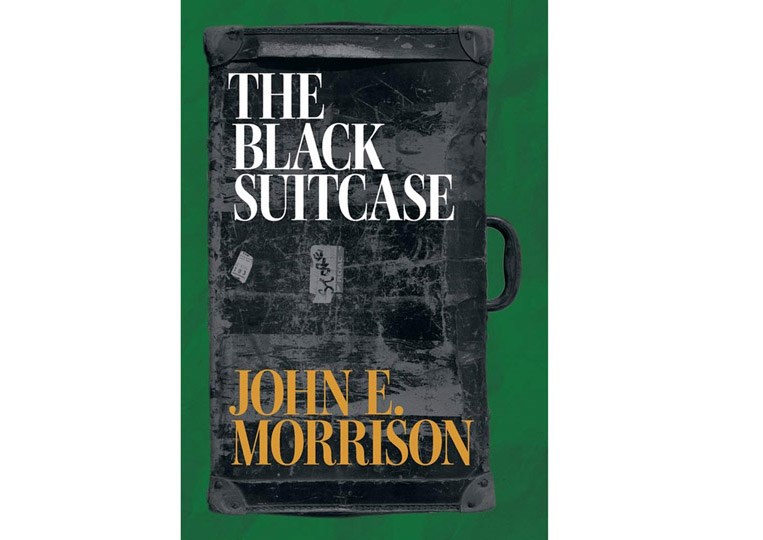Seanie, John, Irish.
He answers to them all depending on who's calling his name.
Seanie is what he goes by most days because that's what his mom called him.
John is his legal name and that one is OK, too.
And Irish, well that's what his beloved wife of more than 60 years, Peggy, called him before she died in 2016 and that one is still nearest and dearest and will forever warm his heart.
John E. Morrison is the name readers will see on the cover of the 85-year-old's memoir The Black Suitcase.
Crack the binding and turn those pages of the self-published book to read about a secret that kept eating at Morrison until he put pen to paper at his Ness Lake home.
Morrison, who grew up poor - even though he didn't know the difference - in Limerick Ireland - was convicted by the 'hanging judge' of stealing Father Lee's old bike and skipping school to earn some money for food, having been raised by a single mother.
The sentence was struck in 1949 when he was 13 years old and he wasn't to be released until he was 16.
During his time in St. Joseph's Industrial School in the village of Glin, County Limerick, Ireland, that was run by the Christian Brothers, Morrison and many other teenage boys and girls were sexually and physically abused and it was a horrific experience that stays with him to this day.
In order to heal, the 30-year Ness Lake resident needed to tell his story.
"It was important for me that the world know what it was like to be locked up at 13 years old," Morrison said. "It was very upsetting and not a day goes by - I can't forget it."
He never told his wife until 2002 when he was contacted by authorities in Dublin who asked him to attend an inquiry into the criminal actions that took place at the residential school.
At that time, Morrison received monetary compensation but it wasn't about that.
"No amount of money could wipe away what had been done to me or the other boys - and the girls," Morrison said. "All we wanted was an apology, which we got from the government of Ireland."
He only told his children about the abuse he had endured when he asked them to read what he'd written for the book that took about 15 years to write.
"I didn't want to go to my grave without them knowing what happened," Morrison said. "It was a lot of weight and now I feel excellent, I can smile. It was a load off my shoulders."
The book is available online at Friesenpress.com or Amazon.ca.



